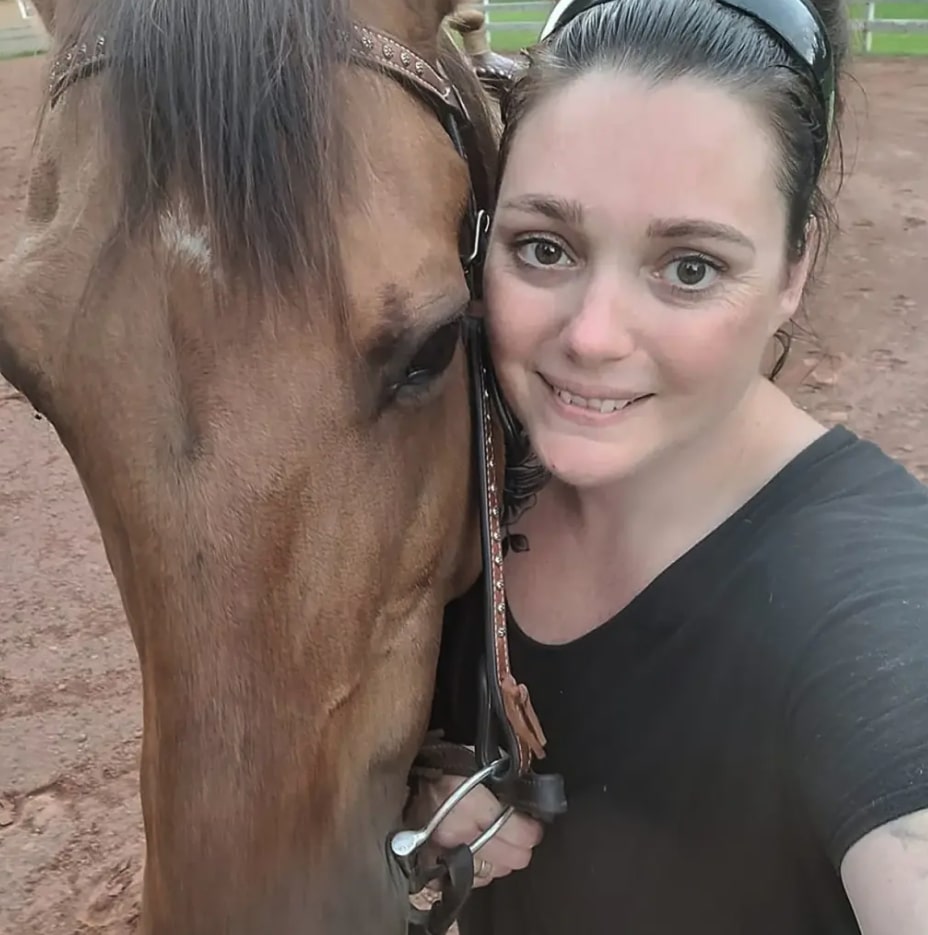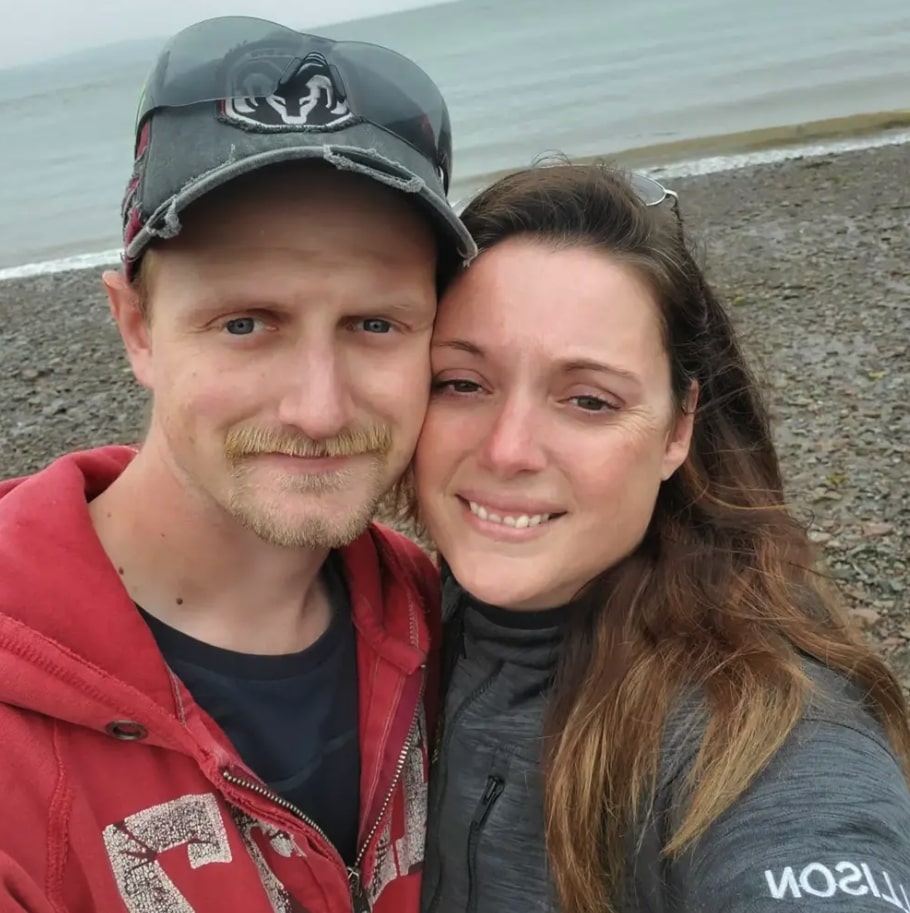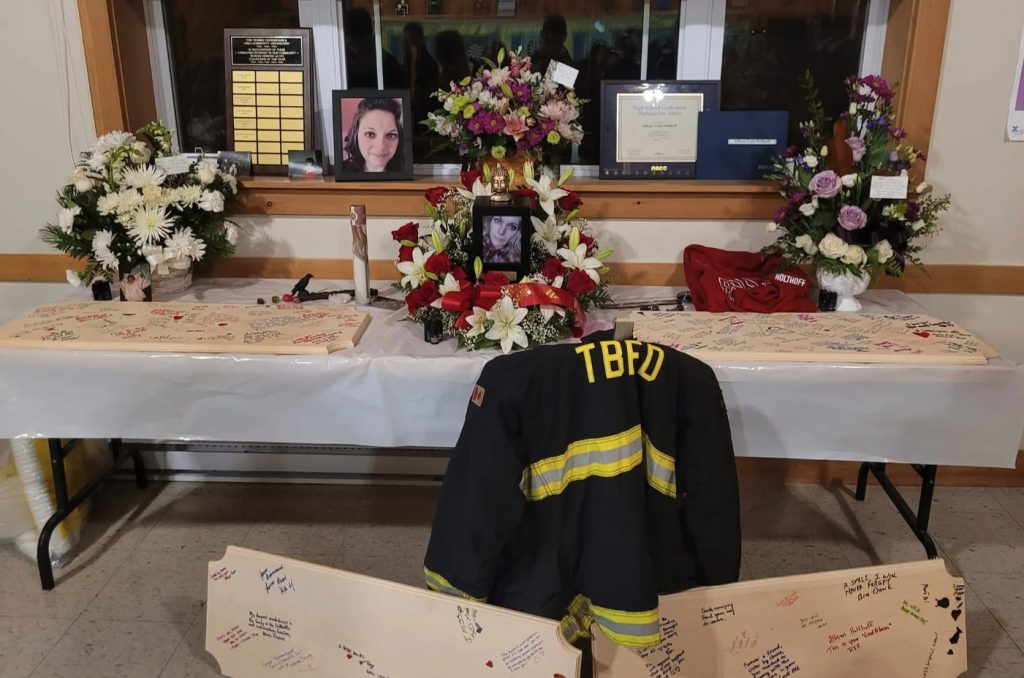The husband of a 37-year-old Canadian woman who died in great agony on New Year’s Eve after spending more than seven hours in a Nova Scotia emergency department told his tale earlier this week, seeking answers regarding his wife’s premature death.
Gunther Holthoff stated that his wife, Allison, awoke early on December 31 with an unsettled stomach. He stated that the mom of three fell from a horse in September and has been in agony ever since.
It’s been a difficult time for her, the widowed spouse stated at a press appearance on Monday afternoon.
Allison Holthoff tried to relieve her agony by taking a bath, but her situation deteriorated.
Ten minutes later, Gunther said his kids informed him that his wife was in pain and writhing on the floor. She was laying on the floor in the hallway, in pain, he remembered.
He elected not to contact 911 for an ambulance since it took four to five hours to arrive after Allison’s horse accident, and he didn’t want to risk waiting that long. Rather, he drove Allison to Cumberland Regional Health Care Centre in Amherst on New Year’s Eve, arriving just after 11 a.m. The couple waited for 20 minutes in triage before being sent back to the waiting area.
Allison’s blood and urine samples were challenging to obtain since she was in so much agony.
When they arrived at the hospital, Gunther placed his wife in a wheelchair. But, the anguish was so great that Allison wound up in the fetal position on the waiting room floor.
He did inform the triage nurse and the lady behind the counter that things were becoming worse, he explained. She wasn’t feeling well and was in a lot of discomfort.
At some time, medical personnel ordered the 37-year-old to recline in the wheelchair.
Allison was afraid she might die in the hospital.
Allison’s health worsened as time passed in the waiting area. She even informed her spouse that she feared she was going to die.
Around 3 p.m., the two entered an exam room, where more blood and urine samples were taken. Gunther returned to the nursing station five times, each time claiming that his wife’s agony had increased.
One of the nurses had asked Gunther whether his wife was always like this. A nurse questioned Allison’s husband if she was on drugs as her eyes began to roll back in her head, and he replied, “No.”
Allison kept telling her husband about her concerns of dying in the waiting area. Gunther remembered his wife crying in pain and pleading for rescue about 6 p.m.
Allison’s heart rate was 100 when a nurse arrived to check her vital signs, and her blood pressure was between 40 and 60.
Everything occurred rapidly after that, and everybody picked up the pace, Gunther explained. It was the first time he felt like someone was genuinely paying attention to them.
Allison was eventually visited by a doctor and given IV fluids and pain medications.
She underwent an EKG and was moved to an x-ray room to ascertain what was wrong with her body. Gunther momentarily left the room and returned to find his wife crying in agony.
Allison’s eyes began to roll back in her head, and a “code blue” was given, indicating that the patient was experiencing cardiac arrest. Medical personnel rushed into the room to undertake life-saving procedures on her.
There are so many people coming and departing. It looked like a railroad station. It was a hectic day, he stated.
Allison had to be revived three times.
Gunther was informed his wife would not survive surgery, and after three efforts at resuscitation, he was told there was nothing further the medical personnel could do. He stated that the doctor did disclose the CT scan, which revealed internal bleeding, but they were unable to pinpoint the primary source of blood loss.
They had a 1% chance of keeping her alive with surgery, but there was not much hope of her ever having a normal or meaningful life at that point, Gunther added. He also saw severe blood loss to his wife’s important organs, especially her brain.
Her three kids, family, and friends gathered to say their final goodbyes to her, and she was pronounced dead at 11 p.m. on December 31.
Gunther says the hospital’s medical professionals ignored his wife.
Sadly, he believed she was ignored to the point where they couldn’t ignore them any longer. It was a dreadful scenario for his wife, his children, and many individuals in the town, he stated.
Gunther claimed over two weeks later that he doesn’t know what caused his wife’s death since the autopsy report hasn’t been released. Allison’s husband and numerous local lawmakers have asked the provincial government to look into her death
The government doesn’t seem to care, Gunther observed. He is not sure what needs to happen or how many more individuals must perish. It’s just a pity.
The Nova Scotia Health Authority has initiated an inquiry into the issue, according to the Department of Health and Wellness.








